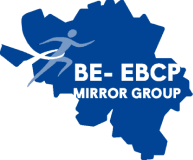Project
MICROBE
ModulatIng Cancer therapy RespOnse using Bacterial Extracellular nanovesicles
1 November 2022 - 30 November 2027
Bacterial extracellular vesicles against cancer
Project description
Like eukaryotic cells, bacteria secrete nanometre-sized extracellular vesicles (BEVs) loaded with active cargo such as proteins as a mechanism of communication with other bacteria and with the host. Scientists under the EU-funded MICROBE project had previously discovered that gut microbiota also secrete BEVs in the systemic circulation of patients with increased intestinal permeability. The biological significance of BEVs in the interplay between the host and bacteria is still largely unknown. Through in-depth characterisation of BEVs from healthy individuals and patients with increased intestinal permeability, MICROBE aims to investigate how BEVs influence the disease course.
Funding programme & Type of action
Funding programme : Horizon Europe – European Research Council (ERC)
Type of action : ERC CONSOLIDATOR GRANTS
Grant agreement number : 101045156
Duration
5 years
